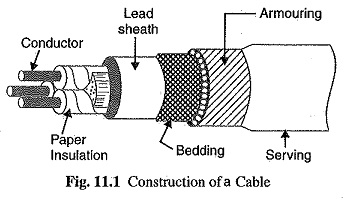Construction of Underground Cables
Construction of Underground Cables: Fig. 11.1 shows the general Construction of Underground Cables. The various parts are : Cores or Conductors: A cable may have one or more than one core (conductor) depending upon the…
Comments Off on Construction of Underground Cables
May 28, 2018
